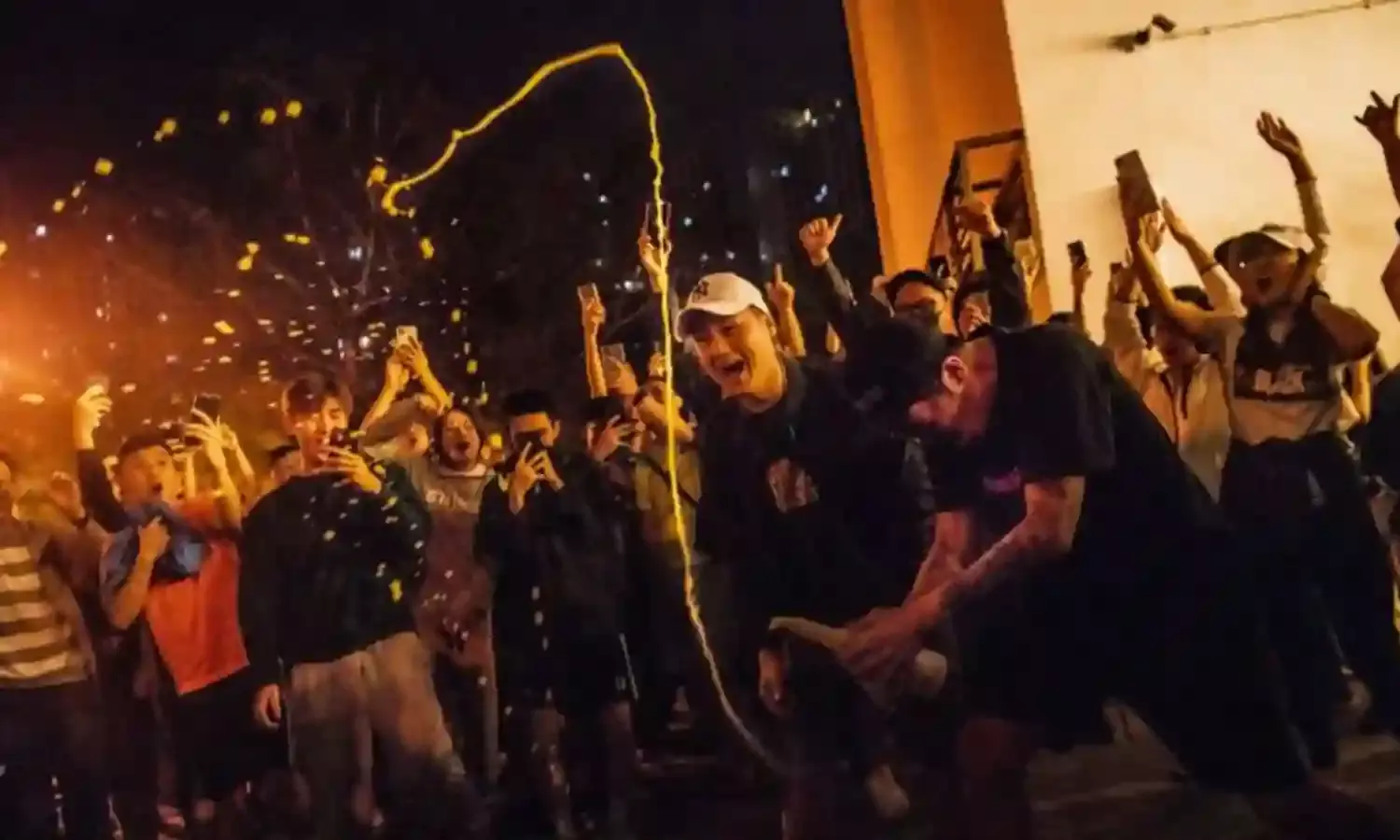What Just Happened In Hong Kong?
Pro-democracy politicians are set to win control of 17 out of 18 councils.
NEW DELHI: Voters in Hong Kong have delivered an unprecedented victory for pro-democracy candidates in the local elections. The verdict is an immense show of solidarity for the protests that have gripped the city over the last several months, and a rebuke to the government’s handling of the crisis.
As a result, pro-democracy politicians are set to win control of 17 out of 18 councils.
The verdict follows months of protests and violence, with protesters wearing masks and carrying black umbrellas numbering in the hundreds of thousands. Reports of police brutality accompanied the protests, with the government justifying its high handedness by claiming support of a “silent majority.”
The protests originated over a controversial extradition bill, but quickly snowballed into a wider anti-government, pro-democracy movement.
Sunday’s vote was the proxy referendum for Hong Kong’s future, with voters turning out in record numbers to vote out pro-Beijing politicians from district councils across the city. The election was the biggest instance of democractic participation in Hong Kong - both in terms of numbers and turnout rates. Nearly 3 million people had voted, that is more than 71% of the electorate and nearly half of Hong Kong’s population.
It’s official - the people of Hong Kong back the protesters, who the government has charged with rioting. The government responded to the protests with the use of tear gas, baton charges and widespread detainment and arrests.
Demonstrators had taken to social media to agree to pause the protests for the elections, enabling the first tear-gas free weekend since mid-August.
The ball is now in Beijing’s court. Hong Kong’s pro-Beijing leader Carrie Lam issued a statement saying the government respects and will listen to the results. "Quite a few are of the view that the results reflect people's dissatisfaction with the current situation and the deep-seated problems in society,” her statement notes. The government would "listen humbly to citizens' opinions and reflect on them seriously.”
The first reaction from Beijing however is less conciliatory. “Whatever happens, Hong Kong is always a part of China and any attempts to create chaos in Hong Kong or to jeopardise its prosperity and stability will not be successful,” said the Chinese foreign minister, Wang Yi.
Whatever may be the government’s response, the significance of the verdict lies in the fact that till now, it was unclear how much of the general population supported the protesters as violence escalated each month. Authorities claimed the support of the majority, and hoped that the election would marginalise the protesters as a small group of fringe elements.
The opposite just happened.
You can read our earlier report on the Hong Kong protest here.





